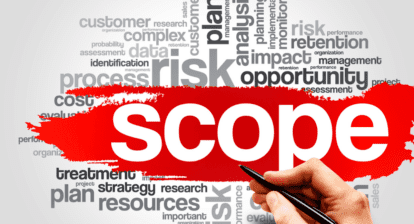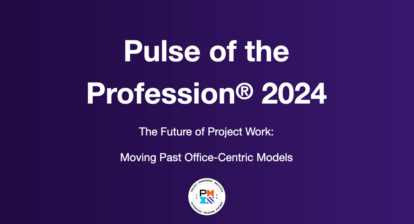There’s a lot of discussion about how we all need to be more strategic. But what does that really mean – and more importantly – how does it benefit your organization? Begin with these facts: For most organizations, budgets are flat, but every organization still wants to squeeze the maximum value out of every dollar it invest in projects. So folks that manage projects can either look for ways to help increase ROI, or risk being seen as simply part of the “cost”. Smart project managers are looking beyond simple project execution. They are taking a more strategic perspective and elevating projects and programs to the level of strategic business investments. This important shift in thinking also leverages tools and processes that integrate investment planning and controls with traditional PPM.
Being more strategic starts by moving beyond traditional project management and adopting a portfolio orientation. That means understanding the potential financial impacts that every project might have on the overall portfolio. More importantly, it’s an approach that recognizes that projects and programs aren’t simply things that need to be completed on-time and within budget. It’s a mindset that sees projects as a collection of strategic investments that need constant management. It’s an approach that places the strategic needs of the business portfolio above any one particular project or program.
Transitioning to a strategic mindset may initially feel uncomfortable to those who have been historically focused on the tactical aspects of project management. But rest assured that a more strategic perspective does not displace the need for continuously improving project delivery capabilities that have traditionally been the primary domain of PPM. Indeed, the key to delivering greater value is in combining superb tactical execution with a more strategic perspective that acknowledges the importance of integrating financial management with traditional PPM.
Encouraging A Culture Of Empowerment
But in order for this new strategic mindset to truly deliver value, all project managers must strive for accuracy and transparency. Better training can obviously help PMs improve their forecasting skills, but there’s often a larger cultural issue to overcome in order for PMs to feel empowered to provide honest and accurate forecasts.
In many organizations, the culture favors PMs who come in significantly under budget vs. spending one dollar over budget. The fear of being asked to explain to an executive why a project has cost overruns or needs more money causes many PMs to play it safe and inflate their estimates and forecasts, while keeping information and data that might contradict those estimates close to the vest.
To be truly effective, project managers must feel empowered to honestly and openly advocate for what’s in the best interests of the entire project portfolio. That means that sometimes, projects will require more funding than initially requested due to their strategic importance or other factors. PMs should feel confident that a request for additional funds will not be held against them or seen as a failure.
In turn, they also need to trust that they won’t be adversely affected if they freely release un-used or un-needed funds in a timely way to be re-invested across the portfolio. For the project management professional to truly become a strategic partner with executive leadership, traditional attitudes must give way to a culture of openness, empowerment and trust. This culture shift is made much easier when the systems supporting PPM provide accurate data and valuable insight that continuously assess the relative strategic value of every investment within the portfolio.
Creating A Virtuous Cycle
With this cultural change in place, a transformation begins to happen. Now armed with more accurate data, PMs feel empowered to accurately forecast remaining costs. With greater trust in the data and the process, the organization can more confidently make decisions around releasing under-spend, redirecting that budget to other projects and assigning excess or un-used budget to double down on key strategic initiatives or fund new projects that increase the business value of the entire portfolio.
By leveraging their natural tactical strengths of traditional project delivery, and infusing into that the strategic importance of integrated investment planning and controls across the entire PPM lifecycle, project managers can start to elevate their role. And as a result of adopting a more strategic mind-set, project management professionals have an opportunity to have a broad and substantive impact throughout their organizations.
If you’re interested in learning more about the forces transforming today’s PMO, visit the UMT360 blog.







